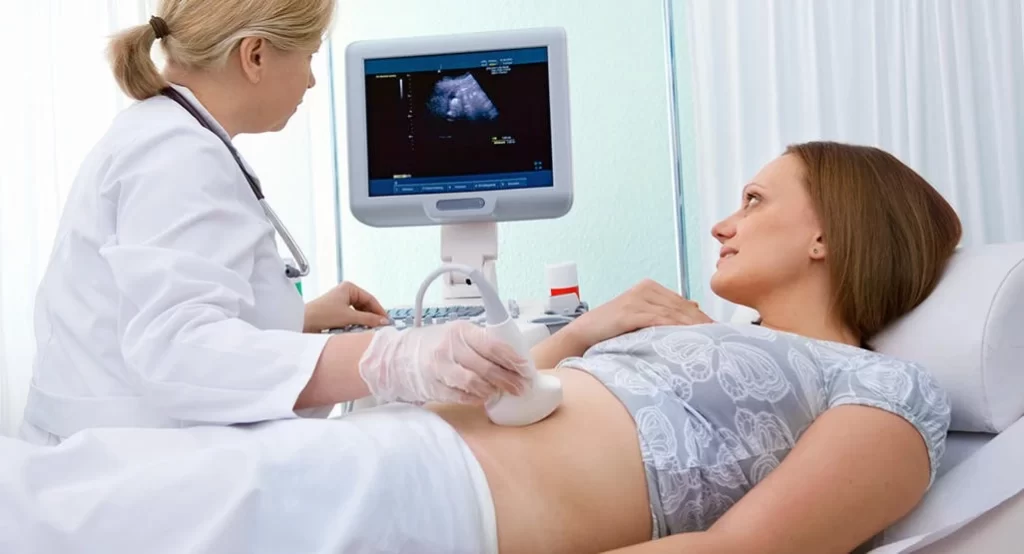
If you are reading this, probably you are going through one of the most special phases in life. And you know that you cannot miss out on this phase without proper planning and implementation. From picking a name to buying cute little baby clothes, everything is exciting. However, one of the most important things to prioritize during pregnancy is regular medical check-ups which also include fetal pregnancy scans.
A fetal pregnancy scan can help you stay updated about your baby from time to time. It is done to receive crucial information about the health and development of both the fetus and the mother. Additionally, it also helps in identifying potential health-related complications and issues early on. In this blog, we will explore the benefits of a maternal-fetal scan, the types of pregnancy scans, and how to prepare for them. So, read ahead to lead a healthy pregnant life and stay prepared for your next fetal scan forward.
Benefits of Maternal-Fetal Scans:
Maternal-fetal scans are also known as prenatal ultrasounds in medical terms. These images are medical imaging techniques used to examine a developing fetus in the womb. They are beneficial for you in the following ways:
Diagnosis of fetal abnormalities:
There’s nothing like seeing your little one on the ultrasound screen for the first time when you are pregnant. It’s an unforgettable moment that is filled with excitement and anticipation for the journey ahead. But beyond just the joy of seeing your baby’s tiny arms and legs a prenatal ultrasound play a crucial role in monitoring the health and development of your unborn child.
One of the most important benefits of maternal-fetal scans is the ability to diagnose fetal abnormalities. There are some conditions that can affect fetal development which has to be identified as early as possible for the best treatment.
Maternal-fetal scans can help you detect abnormalities such as heart defects, neural tube defects, and chromosomal abnormalities which can impact your child’s health after birth. The early detection of these abnormalities through maternal-fetal scans allows every parent to make informed decisions about the pregnancy and plan for the care of the baby after birth.
Estimation of the due date:
One of the first questions that come to the mind of a pregnant woman is “When is my baby due?”
Estimating your due date is important for planning and preparing for the arrival of your little one. Maternal-fetal scans can help you in this process by measuring the size of your baby and the gestational sac. Based on these measurements, doctors can estimate your due date with greater accuracy than traditional methods. This is exactly where maternal-fetal scans prove to be beneficial.
Monitoring fetal growth and development:
Maternal-fetal scans not only provide a sneak peek of your little one but also allow doctors to monitor fetal growth and development. These scans can track the size of your baby as well as the amount of amniotic fluid surrounding them. Moreover, they can also track the position of the placenta. All of this information is crucial for ensuring a healthy pregnancy and delivery.
Guidance for the procedures:
While the thought of medical procedures during pregnancy may seem daunting but maternal-fetal scans can help in guiding doctors during these procedures and minimize the risk of complications. Procedures such as amniocentesis or chorionic villus sampling can be guided by the scan to ensure accuracy and reduce risks. This allows doctors to provide the necessary care while keeping both mother and baby safe.
Types of Pregnancy Scans:
Generally, there are the following types of pregnancy scans:
- Dating scan: This scan is usually done early in pregnancy (around 8-14 weeks) to determine the gestational age of the fetus and estimate the due date.
- Nuchal translucency scan: This scan is typically done between 11-14 weeks to measure the thickness of the fluid at the back of the baby’s neck to assess the risk of chromosomal abnormalities.
- Anatomy scan: This scan is done around 20 weeks to check the baby’s anatomy and growth, as well as the location of the placenta and amniotic fluid levels.
- Growth scan: This scan is done later in pregnancy to assess the baby’s growth and weight.
- 3D/4D scan: This scan creates a 3D or 4D image of the baby to allow the parents to see their baby’s facial features and movements.
How to Prepare for a Fetal Pregnancy Scan?
It is recommended to wear comfortable and loose-fitting clothes that can easily be pulled up or down while preparing for a pregnancy scan. There may be a possibility of considering the full bladder so any other nearby region so chooses an easily accessible apparel. It’s also a good idea to bring along a list of any medications, medical history, or concerns to discuss with the healthcare provider. Additionally, it’s important to arrive on time for the appointment to allow enough time for the scan and any necessary follow-up.
Fetal pregnancy scans are highly important for pregnant women. They are helpful in providing critical and crucial information regarding both the fetus and the mother. They can also help in identifying any issues or developing problems. Therefore, always ensure of safety and good health of your baby by considering these scans from time to time.
